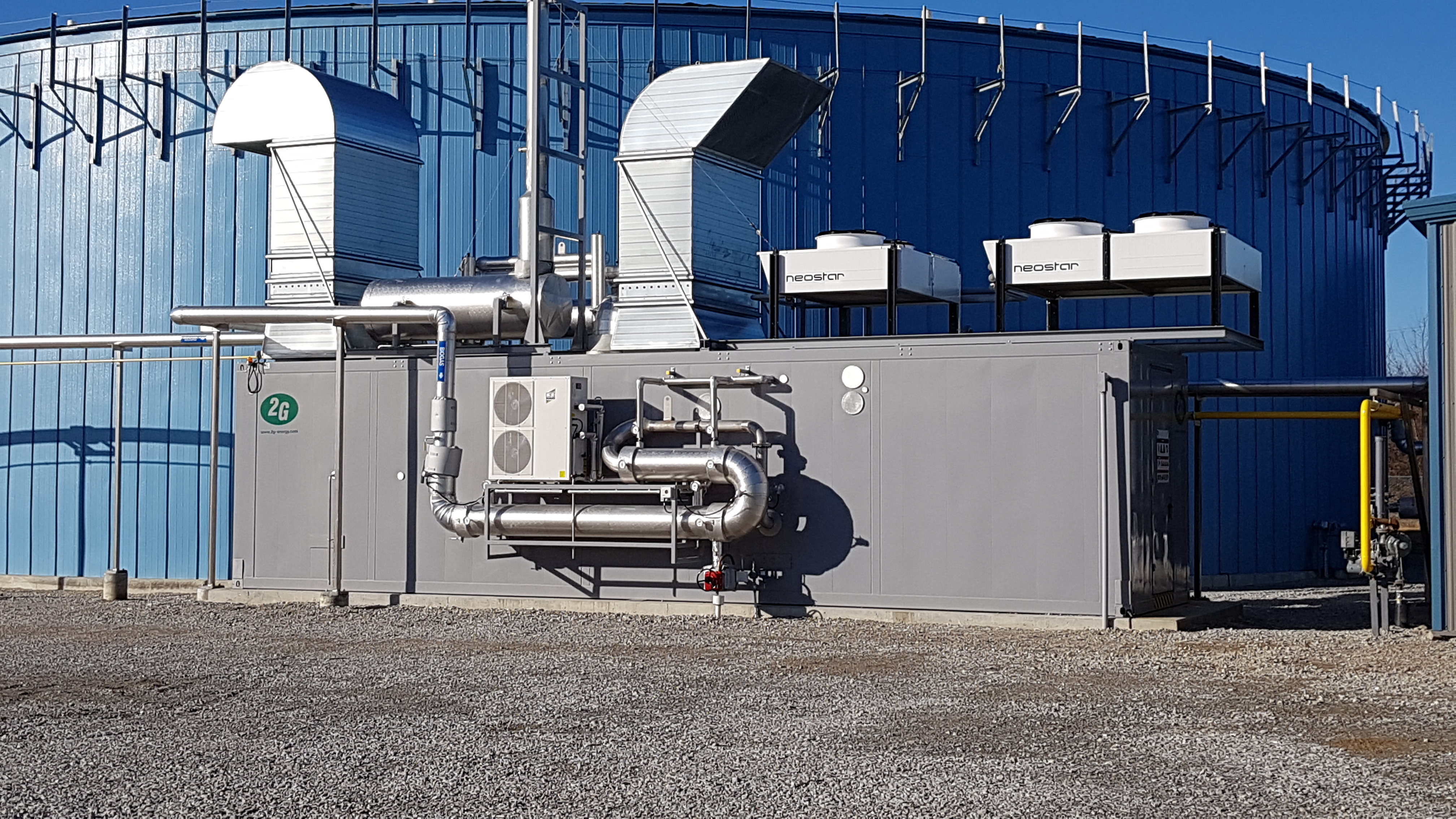- Home
- Applications
- Food Industry
It is becoming more apparent every day that there are areas of our lives that we need to reduce waste and environmental impact. Food waste is an problem of ethics, economics and the environment. For those that are beginning to understand this impact and the importance of being part of the solution rather than the problem, CHP has been a perfect solution.
Benefits of CHP in the Food Waste Industry:
- Divert more than 90% of waste from going to landfill
- Displace CO2 emissions by recycling food waste into methane to create energy
- Reduce energy costs
- Send power back to community
- Increase community sustainability
- Provides resiliency and reliability
Case Studies

KB Specialty Foods - Greensburg, Indiana
This new system replaced a conventional wastewater treatment system and features a dome that captures biogas and the combined heat and power system that takes food by-products and works together to convert them into energy.
Zero Waste Facility since 2014. In that time, they have diverted more than 90% of waste produced from going to landfill each year.

Quantum BioPower - Southington, Connecticut
The facility is processing 40,000 tons of food waste per year through anaerobic digestion, which is creating 1.2 MW of renewable power. That power is being used to power Southington’s municipal buildings. The 1.2 MW system would be capable of powering 976 homes. Every year, Quantum will displace the equivalent of 5,000 tons/year of CO2 emissions by recycling food waste into methane to create energy. The facility also produces 8,000 tons/year of premium organic compost as a residual byproduct of the digestion process.


